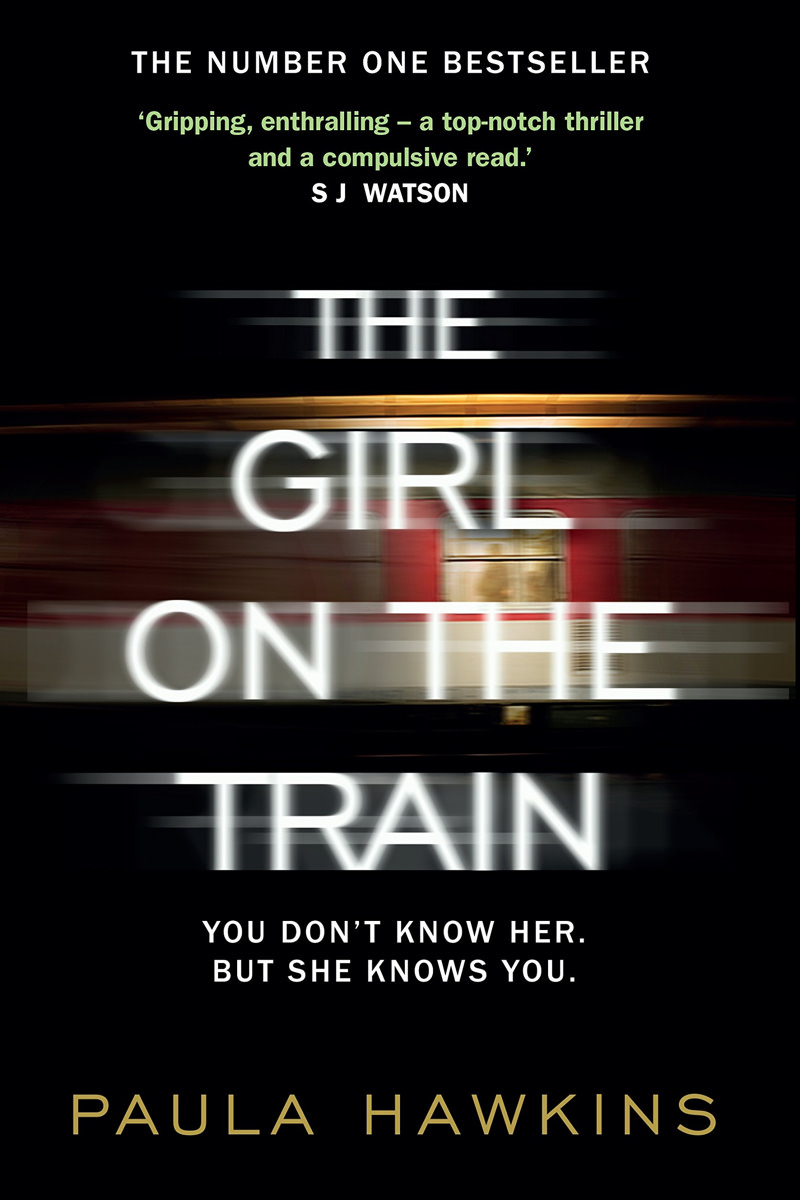The Girl on the Train by Paula Hawkins
The Girl on the Train
Paula Hawkins
Every morning, Rachel gets on the train to London pretending she is going to the job she was fired from three months previously. When the train stops at the signal, Rachel glances over at a row of houses and observes the actions of a young couple she has named Jason and Jess, but she is disturbed one morning when she sees Jess being kissed by another man. Then, Rachel’s elaborate fantasy comes crashing down when Jess goes missing.
Megan and Scott live on the same street where Rachel’s ex-husband, Tom, lives with his second wife, Anna, and their baby daughter. Rachel, an alcoholic, has been making a nuisance of herself by visiting their home unannounced and making frequent phone calls while drunk. Rachel suffers from blackouts which leave her unable to recall her actions while under the influence but she begins to have fleeting flashbacks to the day Megan disappeared and is convinced she was in the area that day.
review
The Girl on the Train was a book I kept seeing on the bestsellers lists but something about it just didn’t appeal to me and to be frank I was right. The story itself is an intriguing one because as a commuter myself, I’ve found myself glancing into houses, wondering about the people who live in them, although I haven’t gone as far as Rachel in building a fantasy storyline about any of them. The trouble with this book is the characters are so unlikeable and while this may be fashionable these days, I’m afraid I’m one of those pesky readers who likes to fall in love with her characters, flaws and all. Initially, Rachel did evoke my sympathy as it was obvious she was still suffering from the effects of her husband’s infidelity and was unable to move on with her life due to her alcoholism, however her subsequent behaviour in trying to solve Megan’s disappearance is so bizarre it is just annoying.
Most of the characters have secrets and while they initially seem like pleasant people, as the story unfolds, they are revealed to be anything but nice. Hawkins actually does a great job of playing with our perceptions in this respect and it helps we are given the perspective of other characters but there are so many twists and turns you can’t believe any of them. There is a massive twist at the end, leading up to the big reveal, but it falls completely flat because it was easy to work out long before. It’s also a bad sign when you realise you don’t really care when your main character ends up being in mortal danger, and that kinda takes away some of the dramatic tension.

